Regulation of International Financial Markets and International Banking
This research group analyses causes and consequences of banks' international activities and the regulatory framework they operate in.
Internationally active banks can facilitate an efficient international allocation of capital and provide channels for international risk sharing. But they can also be a source of financial instabilities themselves, thus contributing to international contagion and risk-shifting. This is one reason for the current re-regulation of international banking.
The research group contributes to the literature in three ways. First, the group empirically analyses the channels through which shocks are transmitted by internationally active banks. Second, the group analyses the build-up of aggregate imbalances in integrated banking markets and resulting consequences for the real economy. Third, the group analyses the impact of changes in banking supervision and regulation on (inter)national activities of banks, with a special focus on the European integration process.
IWH Data Project: International Banking Library
Research Cluster
Economic Dynamics and StabilityYour contact

Mitglied - Department Financial Markets
EXTERNAL FUNDING
07.2017 ‐ 12.2022
The Political Economy of the European Banking Union
European Social Fund (ESF)
Causes of national differences in the implementation of the Banking Union and the resulting impact on financial stability.
01.2015 ‐ 12.2017
Dynamic Interactions between Banks and the Real Economy
German Research Foundation (DFG)
Refereed Publications
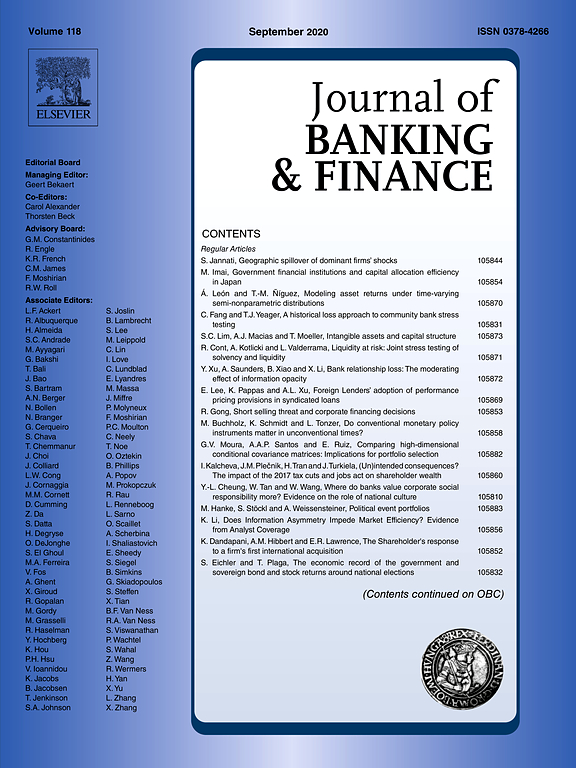
Interactions Between Bank Levies and Corporate Taxes: How is Bank Leverage Affected?
in: Journal of Banking and Finance, No. 105874, September 2020
Abstract
Regulatory bank levies set incentives for banks to reduce leverage. At the same time, corporate income taxation makes funding through debt more attractive. In this paper, we explore how regulatory levies affect bank capital structure, depending on corporate income taxation. Based on bank balance sheet data from 2006 to 2014 for a panel of EU-banks, our analysis yields three main results: The introduction of bank levies leads to lower leverage as liabilities become more expensive. This effect is weaker the more elevated corporate income taxes are. In countries charging very high corporate income taxes, the incentives of bank levies to reduce leverage turn insignificant. Thus, bank levies can counteract the debt bias of taxation only partially.

Financial Incentives and Loan Officer Behavior: Multitasking and Allocation of Effort under an Incomplete Contract
in: Journal of Financial and Quantitative Analysis, No. 4, 2020
Abstract
We investigate the implications of providing loan officers with a nonlinear compensation structure that rewards loan volume and penalizes poor performance. Using a unique data set provided by a large international commercial bank, we examine the main activities that loan officers perform: loan prospecting, screening, and monitoring. We find that when loan officers are at risk of losing their bonuses, they increase prospecting and monitoring. We further show that loan officers adjust their behavior more toward the end of the month when bonus payments are approaching. These effects are more pronounced for loan officers with longer tenures at the bank.
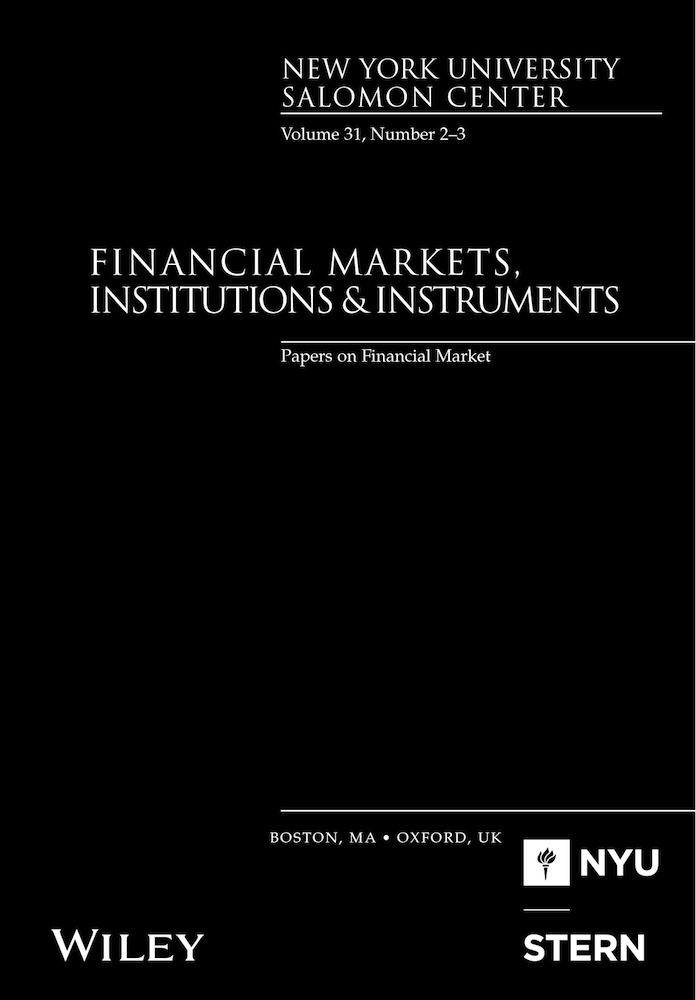
Banks’ Equity Performance and the Term Structure of Interest Rates
in: Financial Markets, Institutions and Instruments, No. 2, 2020
Abstract
Using an extensive global sample, this paper investigates the impact of the term structure of interest rates on bank equity returns. Decomposing the yield curve to its three constituents (level, slope and curvature), the paper evaluates the time-varying sensitivity of the bank’s equity returns to these constituents by using a diagonal dynamic conditional correlation multivariate GARCH framework. Evidence reveals that the empirical proxies for the three factors explain the variations in equity returns above and beyond the market-wide effect. More specifically, shocks to the long-term (level) and short-term (slope) factors have a statistically significant impact on equity returns, while those on the medium-term (curvature) factor are less clear-cut. Bank size plays an important role in the sense that exposures are higher for SIFIs and large banks compared to medium and small banks. Moreover, banks exhibit greater sensitivities to all risk factors during the crisis and postcrisis periods compared to the pre-crisis period; though these sensitivities do not differ for market-oriented and bank-oriented financial systems.
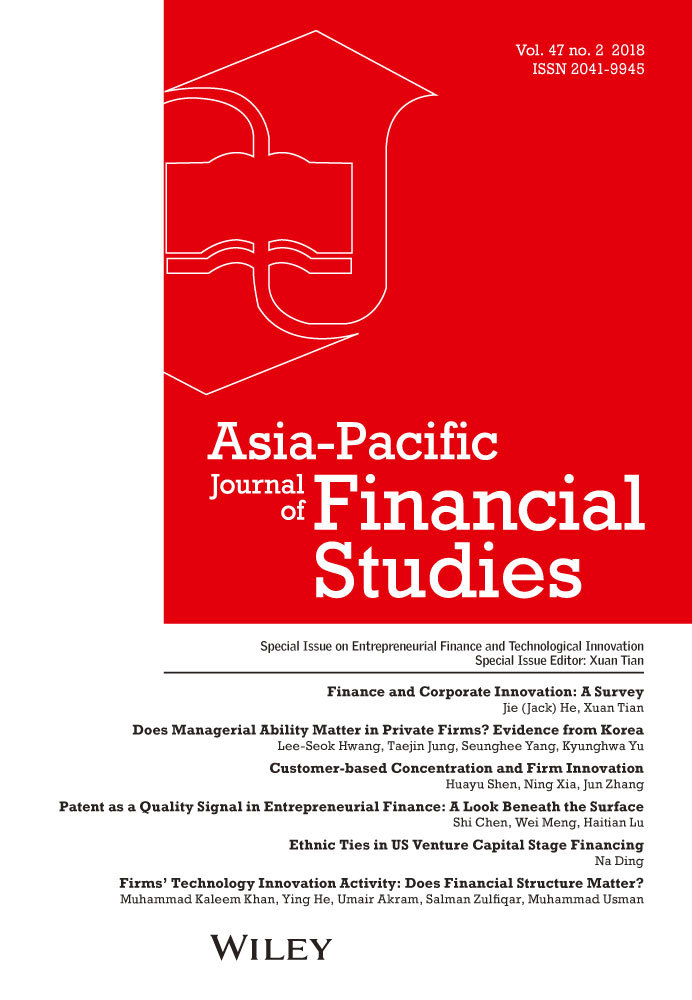
The Dilemma of International Diversification: Evidence from the European Sovereign Debt Crisis
in: Asia-Pacific Journal of Financial Studies, No. 2, 2020
Abstract
This paper tests how capital markets value the international diversification of banks in good and in bad economic times by investigating changes in domestic and foreign sovereign debt ratings before and during the European sovereign debt crisis. Tracing 320 European banks in 29 countries and 226 credit rating announcements for European sovereigns between 1 January 2001 and 15 August 2012, we show that the market values banks with access to foreign funds. Despite occasional adverse effects immediately following negative news regarding sovereign credit rating changes, international diversification was found to be beneficial to European banks, especially during periods of distress.

Cross-border Transmission of Emergency Liquidity
in: Journal of Banking and Finance, April 2020
Abstract
We show that emergency liquidity provision by the Federal Reserve transmitted to non-U.S. banking markets. Based on manually collected holding company structures, we identify banks in Germany with access to U.S. facilities. Using detailed interest rate data reported to the German central bank, we compare lending and borrowing rates of banks with and without such access. U.S. liquidity shocks cause a significant decrease in the short-term funding costs of the average German bank with access. This reduction is mitigated for banks with more vulnerable balance sheets prior to the inception of emergency liquidity. We also find a significant pass-through in terms of lower corporate credit rates charged for banks with the lowest pre-crisis leverage, US-dollar funding needs, and liquidity buffers. Spillover effects from U.S. emergency liquidity provision are generally confined to short-term rates.
Working Papers
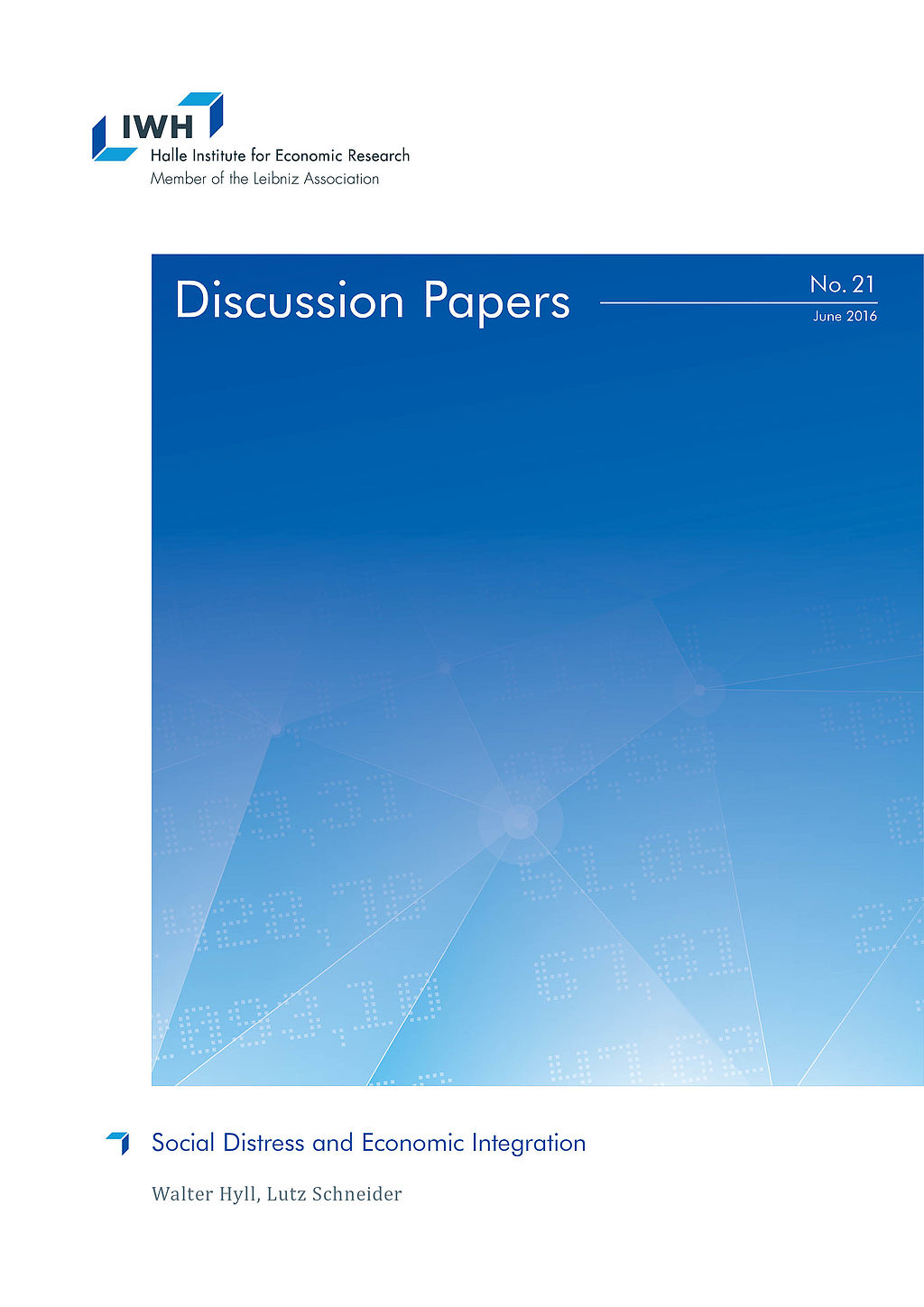
Friend or Foe? Crowdfunding Versus Credit when Banks are Stressed
in: IWH Discussion Papers, No. 8, 2015
Abstract
Does bank instability push borrowers to use crowdfunding as a source of external finance? We identify stressed banks and link them to a unique, manually constructed sample of 157 new ventures seeking equity crowdfunding. The sample comprises projects from all German equity crowdfunding platforms since 2011, which we compare with 200 ventures that do not use crowdfunding. Crowdfunding is significantly more likely for new ventures that interact with stressed banks. Innovative funding is thus particularly relevant when conventional financiers are facing crises. But crowdfunded ventures are generally also more opaque and risky than new ventures that do not use crowdfunding.
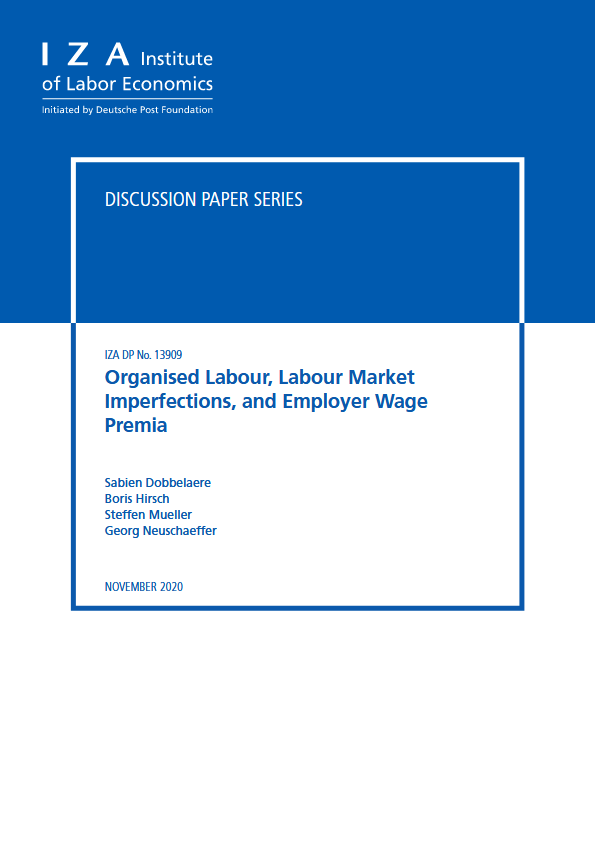
Explaining Regional Disparities in Housing Prices across German Districts
in: IZA Institute of Labor Economics, March 2022
Abstract
Over the last decade, German housing prices have increased unprecedentedly. Drawing on quality-adjusted housing price data at the district level, we document large and increasing regional disparities: growth rates were higher in 1) the largest seven cities, 2) districts located in the south, and 3) districts with higher initial price levels. Indications of price bubbles are concentrated in the largest cities and in the purchasing market. Prices seem to be driven by the demand side: increasing population density, higher shares of academically educated employees and increasing purchasing power explain our findings, while supply remained relatively constrained in the short term.














